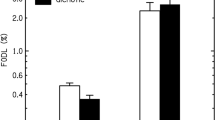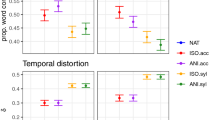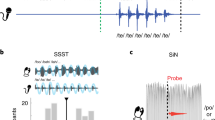Abstract
DR. HARTRIDGE'S interesting report (NATURE, May 17, p. 713) of experiments with light pendulums driven by resonance from a heavy pendulum of variable length, states that a careful change in length without interruption of motion resulted in a gradual dying out of non-resonant small pendulums with increased motion of resonant pendulums. The change must be gradual, not interrupted, and carefully made. A sudden change or a single brief impulse would result in irregular jangling. If Dr. Hartridge will hang his small resonance pendulums on a body that gives sudden jerks, he will find that each jerk will produce a jangle. The speech tone from the larynx does not consist of a sequence of pendulum vibrations but of a series of sudden jerks. These jerks do not come at a constant interval in speech but at an ever-changing one. Each jerk would produce in a pendular resonance system a jangle of tones, and the series of jerks would produce only continued jangle. This fundamental fact disposes not only of the harmonic theory of the vowels but also of the resonance theory of hearing.
This is a preview of subscription content, access via your institution
Access options
Subscribe to this journal
Receive 51 print issues and online access
$199.00 per year
only $3.90 per issue
Buy this article
- Purchase on Springer Link
- Instant access to full article PDF
Prices may be subject to local taxes which are calculated during checkout
Similar content being viewed by others
Author information
Authors and Affiliations
Rights and permissions
About this article
Cite this article
SCRIPTURE, E. The Theory of Hearing. Nature 113, 925–926 (1924). https://doi.org/10.1038/113925a0
Issue Date:
DOI: https://doi.org/10.1038/113925a0
Comments
By submitting a comment you agree to abide by our Terms and Community Guidelines. If you find something abusive or that does not comply with our terms or guidelines please flag it as inappropriate.



